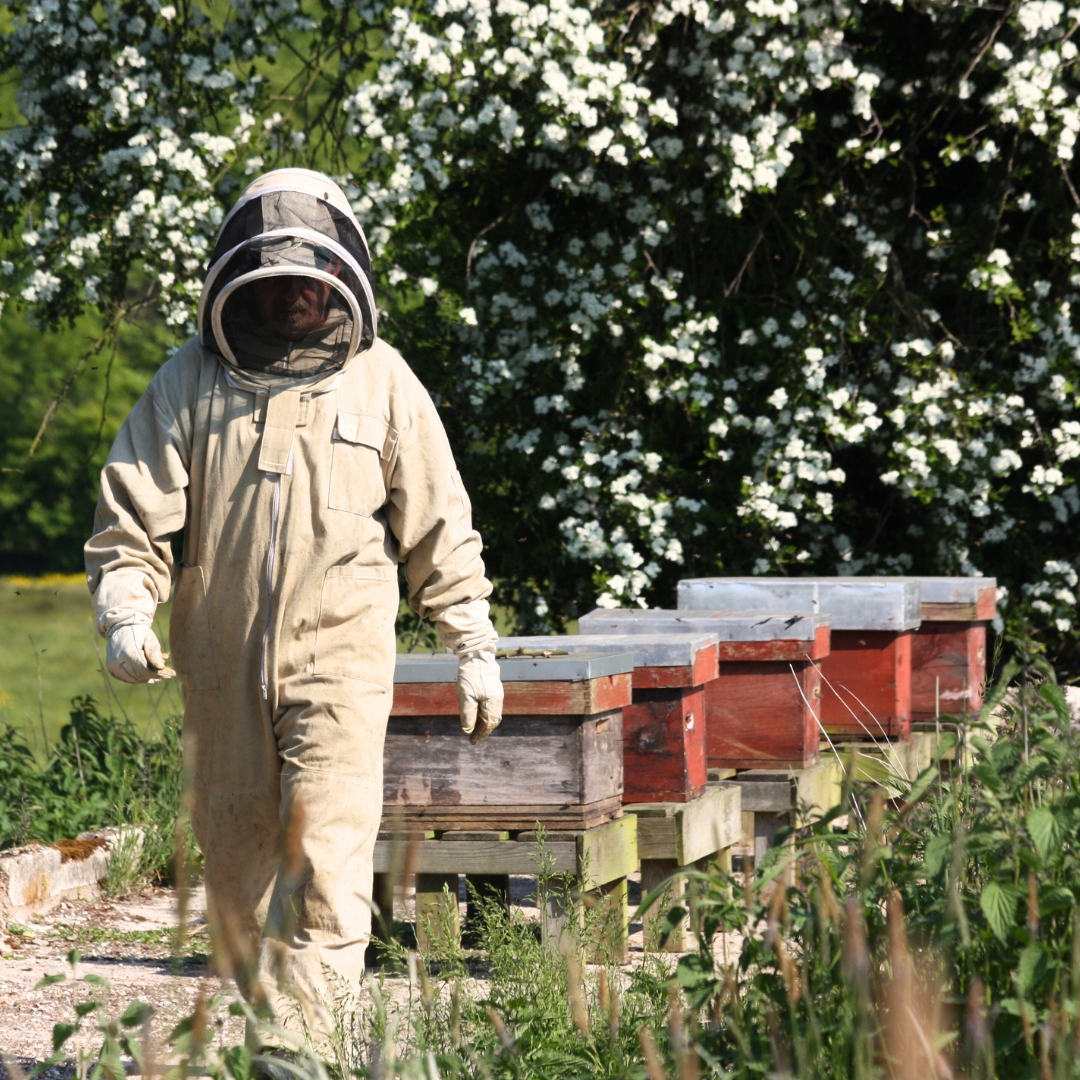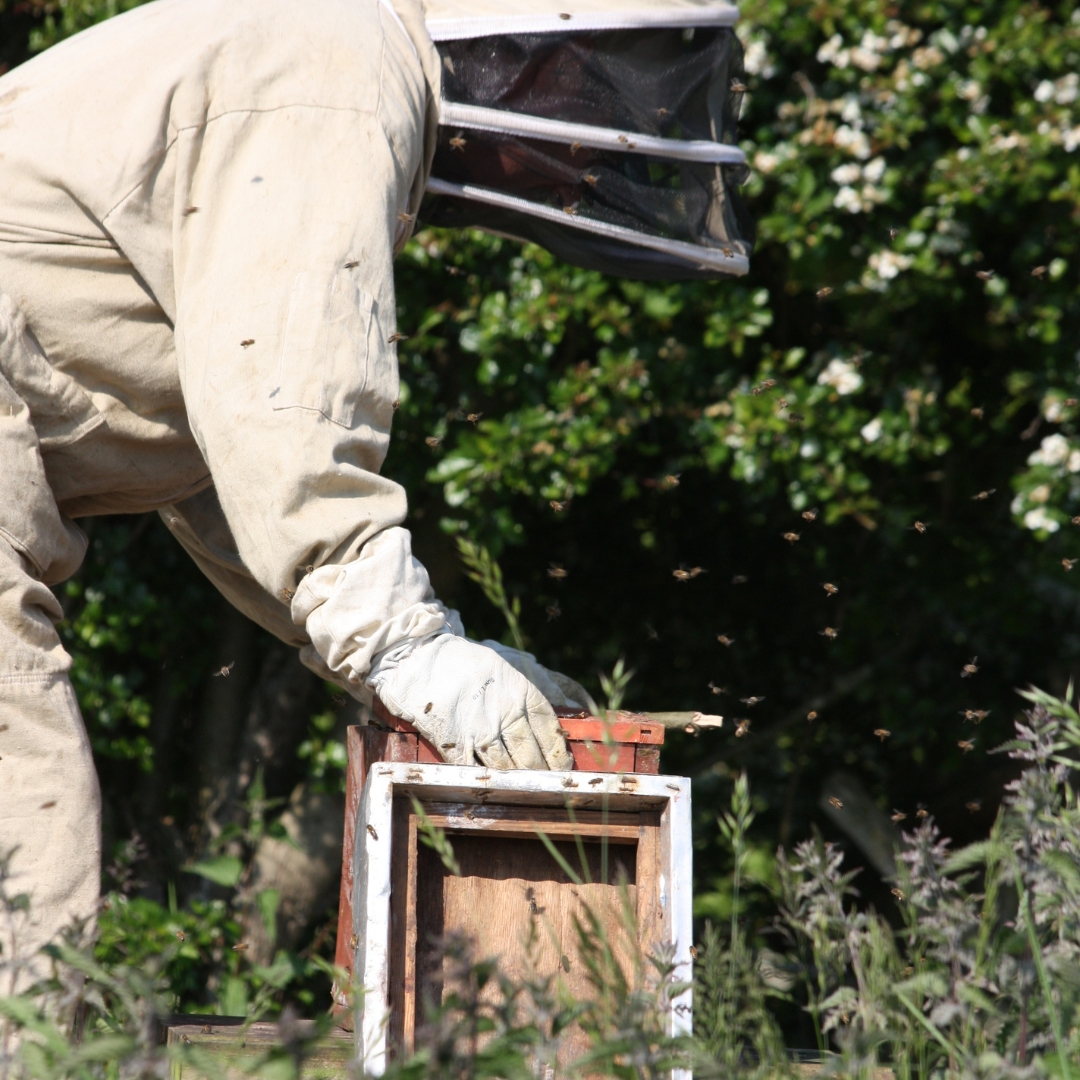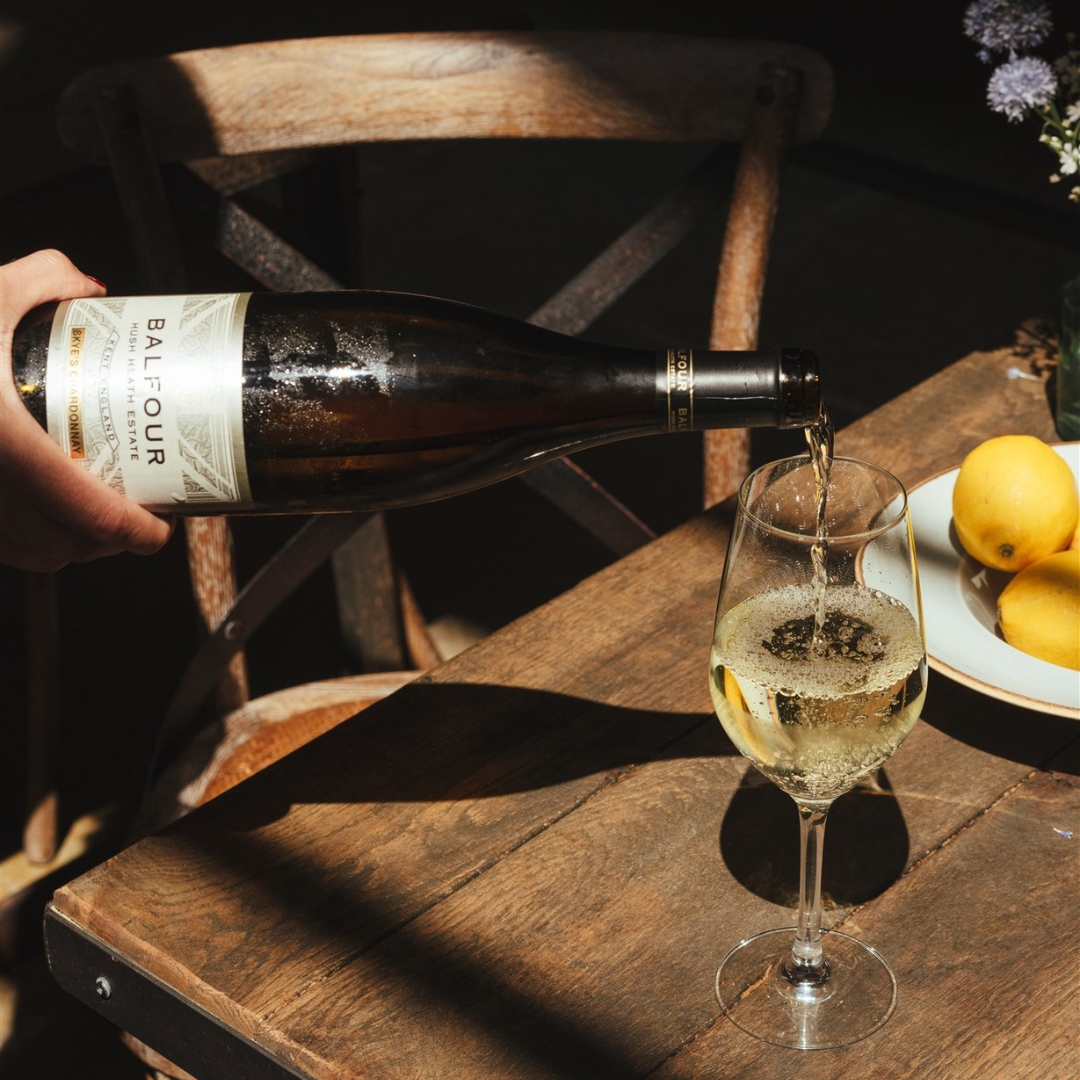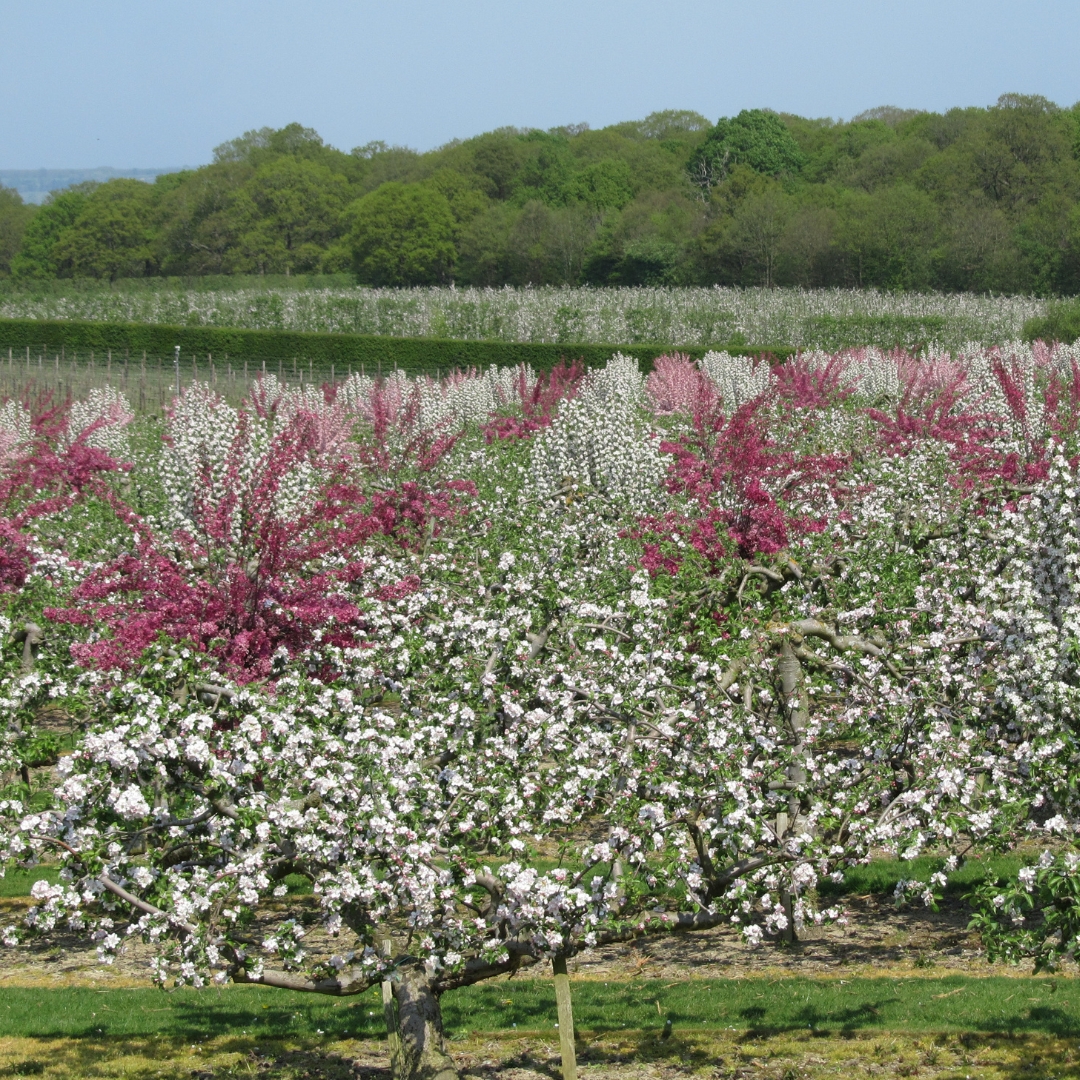The Importance of Bees, at Balfour Winery
Bees are English Wine’s secret weapon. Here’s how they help make our exceptional Balfour Wines, from the beauty of our Hush Heath Estate.
Effective pollinators
Although vines themselves are self pollinating, bees play a fantastic role in helping all the biodiversity you’ll find at Hush Heath Estate to grow, reproduce and flourish. Bees are effective pollinators, and help ensure all the flora around our beautiful landscape continues to grow.
This in turn helps create more of what we call “cover crops” – other plants than vines which you’ll find between the rows of vineyards and around our edges. At Balfour we even give over huge swathes of land to wildflower meadows too. These areas of wild flowers and grasses help to foster a rich diversity of species – which benefits the production of quality fruit’.
A canary in the vine
Having a richer, healthier biodiversity in our vineyards means we use fewer chemicals and pesticides. That, in turn, means we see more bees on Hush Heath Estate. The bees then promote more of the rich, nutrient producing landscape you can see on one of our vineyard tours.
The presence of these important indicator species reflects the quality of our environment – which is crucial to the production of the excellent Balfour wines and ciders we make every year.
Orchards & Honey
Balfour is about more than wine, and the work our bees do in the apple orchards for the delicious Jake’s Drinks means that – come autumn – we’re able to make superb cider from our own Hush Heath trees.
And of course a huge benefit to having colonies of bees across our estate is the delicious, floral infused honey these Kentish bees create. Something you can taste for yourself in our Hush Heath Honey (available as a gift or through our Balfour Winery shop).
Book a tour with Lindy and her team to find out more.




Back to Blog
